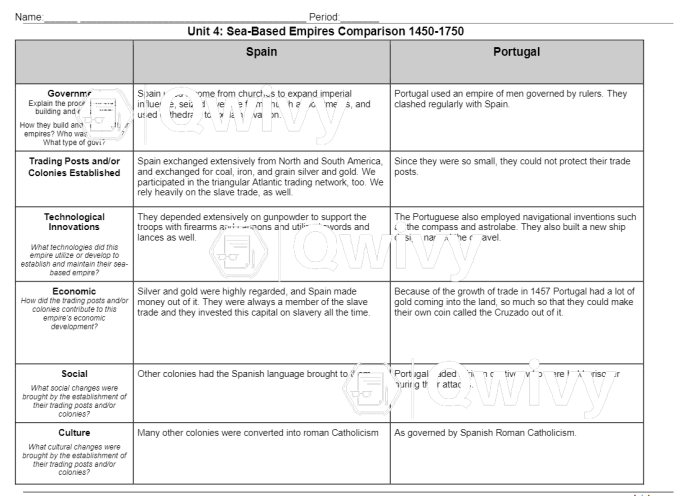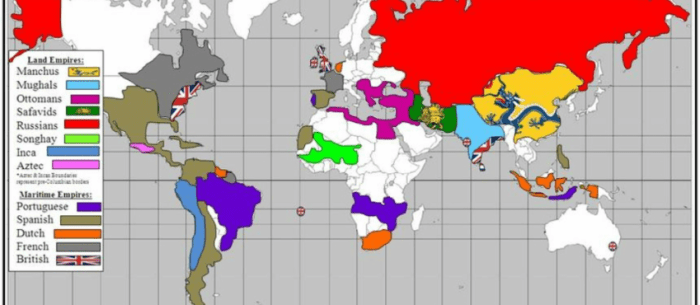Unit 4: Sea-Based Empires Comparison 1450-1750 embarks on a captivating journey through the annals of maritime history, delving into the rise and fall of European seafaring empires that shaped the global landscape.
From the intrepid voyages of Portuguese explorers to the vast colonial networks established by Spain, England, France, and the Netherlands, this unit unravels the complex tapestry of political, economic, and cultural dynamics that defined this era.
European Sea-Based Empires in the Early Modern Era: Unit 4: Sea-based Empires Comparison 1450-1750

During the period 1450-1750, several European powers established vast sea-based empires that reshaped the global political and economic landscape. These empires, including the Portuguese, Spanish, Dutch, French, and British, played a pivotal role in the development of global trade, exploration, and colonization.
The Portuguese Empire, established in the 15th century, pioneered maritime exploration and established a global trade network connecting Europe, Asia, and Africa. The Spanish Empire, founded in the same century, conquered vast territories in the Americas and established a vast colonial empire that spanned from the Caribbean to the Pacific.
Origins and Expansion of the Portuguese Empire
- Established in the 15th century under Prince Henry the Navigator
- Motivated by the search for new trade routes to Asia and the desire to spread Christianity
- Expanded rapidly through exploration and conquest, establishing colonies in Africa, Asia, and South America
Origins and Expansion of the Spanish Empire, Unit 4: sea-based empires comparison 1450-1750
- Founded in the 15th century after the marriage of Ferdinand of Aragon and Isabella of Castile
- Driven by the desire for wealth and territory
- Conquered vast territories in the Americas, including Mexico, Peru, and the Caribbean
FAQ Summary
What were the major factors that contributed to the rise of European sea-based empires?
Technological advancements in shipbuilding and navigation, the search for new trade routes and resources, and the desire for political and economic dominance.
How did the European sea-based empires impact the indigenous populations of the Americas, Africa, and Asia?
The arrival of European powers had profound consequences for indigenous societies, including displacement, disease, and the disruption of traditional ways of life.
What were the long-term effects of the European sea-based empires on the development of global trade and diplomacy?
European empires established new trade networks and diplomatic relationships that connected different parts of the world, shaping the course of global commerce and international relations.


